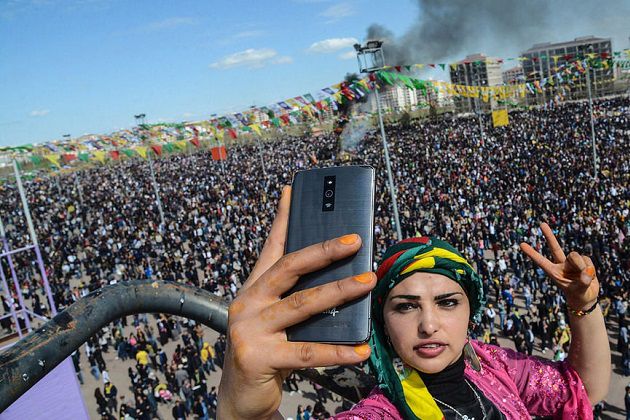While the world keeps on talking about rhetorical disagreements between Turkish and European politicians, about Nazi-comparisons, cows and stabbed oranges, the situation in southeast Turkey has been drifting out of the international focus. More than one year after heavy fighting broke out between state security forces and PKK-linked Kurdish youth militias in several cities, the United Nations High Commissioner for Human Rights (OHCHR) has released a report, saying that severe human rights violations have been committed by the Government of Turkey during the fighting.
According to the report, between July 2015 and December 2016 2.000 people (among these a considerable number of civilians including children) have been being killed and between 350.000 and 500.000 displaced. OHCHR documented numerous cases of excessive use of force; enforced disappearances; torture; destruction of housing and cultural heritage; incitement to hatred; prevention of access to emergency medical care, food, water and livelihoods as well as violence against women. The High Commissioner comes to the conclusion that - also mentioning violent attacks committed by Kurdish groups - the "domestic protection of human rights in south-east Turkey has effectively been non-functioning". The reaction of the Turkish government to the report came right away: They rejected it by calling it "biased, incorrect and far from professional." Ankara however continues to block any visit from an independent fact-finding mission to Turkey.
Meanwhile, the living conditions are still bad for the Kurdish population in Turkey's south-east since the conflict is going on and curfews continue after the fighting has ended. The Turkish military has recently launched a security operation against PKK militants in the eastern province of Tunceli. The authorities furthermore declared a total of 31 regions to be "special security regions" for 15 days on 17th March. Between 11th March and 18th March 28 militants were said to have been killed in anti-PKK operations in the provinces in southeast Turkey, according to the Turkish General Staff.
The fighting in Turkey came after years of non-successful negotiations between both parties, but also mainly as an extension of the territorial disputes between Turkey and the PKK-linked Kurdish forces YPG/J in Northern Syria. Only recently Syrian-Kurdish forces proclaimed de-facto autonomy over the city of Manbij, located within the Aleppo Governorate, establishing what they now call their fourth canton. On 12th March 2017, a new civil administration council was declared.
Manbij has been held by the US-backed Syrian Democratic Forces (SDF) - an alliance dominated by PKK-aligned groups - since being captured from the Islamic State in August 2016. The city could serve as an important gateway, if Turkish ground forces were to take part in an offensive on the IS-stronghold of Raqqa. Turkey is said to have offered such ground forces to the US, hoping that in exchange the American administration would give up their support for the YPG/J.
However, so far both Washington and Moscow harbor doubts about the ability of Turkey to deliver Raqqa, especially as Syrian regime forces might get caught up in fights with the Turks and their allies. To prevent Turkish forces moving on the Manbij area, in an unprecedented act, the YPG/J relinquished territory to the Syrian army, that now forms a buffer zone between the Kurdish controlled area and the one held by Turkish aligned forces. US Special Forces were likewise reported in the area, acting as a deterrence to further Turkish attacks on Kurdish positions.
Nevertheless, there are news apart from the military-related ones. On 21th March the Kurds celebrate Newroz, the popular spring festival. It is considered to be the most important festival in Kurdish culture and in previous years the celebrations have witnessed violent clashes. After a peaceful period during the Turkish-Kurdish peace process, clashes and repressions reoccurred, when negotiations were brought to a halt. This year the festivities took place under the state of emergency in Turkey. Due to that a lot of events have partly or completely been banned. But in a lot of cities like Diyarbakır, Konya, Denizli as well as Manbij the Kurds gathered and danced around the traditional torches anyway.


